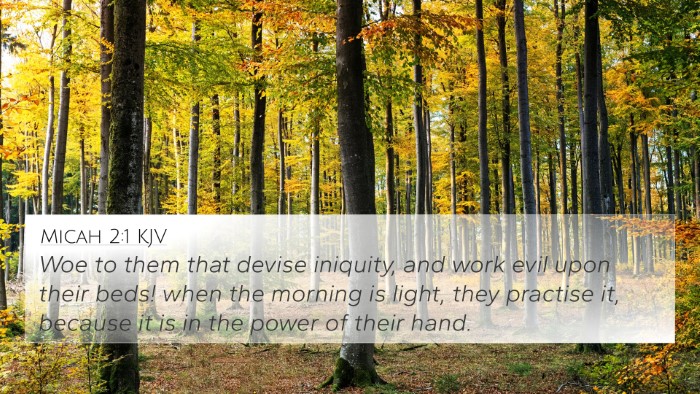Understanding Proverbs 3:27
Proverbs 3:27 states: "Withhold not good from them to whom it is due, when it is in the power of thy hand to do it." This verse conveys a profound moral imperative about the responsibility we bear in our interactions with others, emphasizing that we should not withhold what is good from those who deserve it, particularly when we are in a position to help.
Meanings and Insights
This verse is rich in implications relating to ethics, social justice, and human responsibility. As interpreted by various commentaries:
-
Matthew Henry:
Henry emphasizes the importance of acting justly and generously towards others. He points out that it is within one’s capability to assist others, and if one possesses the means, it is a moral duty to share them. He highlights that the verse encourages an attitude of benevolence and care in community relationships.
-
Albert Barnes:
Barnes discusses the nature of 'good' in this context, interpreting it as acts that are beneficial and just. He underlines that withholding good leads to moral and social repercussions and that one should actively seek to do good to others whenever possible, especially those who have earned it through their presence or needs.
-
Adam Clarke:
Clarke expands on the social implications of this verse, noting that it applies not only to charity but also to fairness in business dealings and interpersonal relationships. He mentions that delaying or refusing to provide help that can alleviate someone’s suffering or enhance their life is contrary to the spirit of the Christian faith.
Cross-References and Thematic Connections
In studying Proverbs 3:27, several cross-references highlight its themes of generosity, moral duty, and social responsibility:
- James 2:15-16: Discusses the necessity of acting on faith by helping the needy.
- Galatians 6:10: Encourages doing good to all, especially to fellow believers.
- Luke 6:31: The Golden Rule; treating others as you would want them to treat you.
- Matthew 25:40: Highlights the importance of serving others as serving Christ.
- 1 John 3:17: Asserts that love for others is shown through actions and support.
- Proverbs 11:24: Advises that giving generously leads to more blessings in return.
- Ephesians 4:28: Encourages honest work and sharing with those in need.
Comparative Analysis and Connection among Scriptures
When conducting a comparative Bible verse analysis, one can observe the repeated themes of social duty and community support across these references. These connections serve as a reminder of the essential role that compassion and responsibility play in our lives as individuals and as members of a society.
Tools and Methods for Cross-Referencing
Utilizing various tools for Bible cross-referencing enhances understanding. Consider the following:
- Bible concordance to find specific words and their occurrences.
- A Bible cross-reference guide that provides thematic links between verses.
- Cross-reference Bible study methods for in-depth exploration of scriptural relationships.
- Bible reference resources that compile numerous verses under themes.
- Comprehensive Bible cross-reference materials for detailed study and sermon preparation.
Inter-Biblical Dialogues
This verse sparks inter-Biblical dialogue by inviting reflection on how Old Testament principles of justice and kindness carry through to New Testament teachings about love and service. The continuity of these themes highlights an overarching biblical narrative that values compassion and moral integrity.
Conclusion
Proverbs 3:27 not only encourages individuals to be generous and kind, but it also serves as a reminder of our interconnectedness in society. By understanding its meaning and context, along with its thematic connections to other scriptures, one can cultivate a more profound commitment to living out these principles in daily life.









